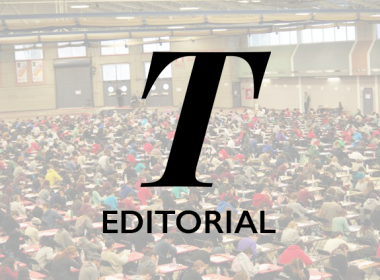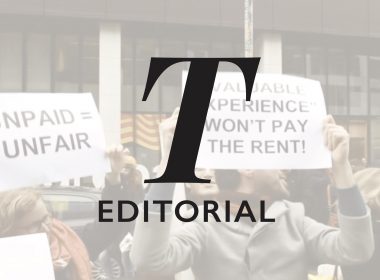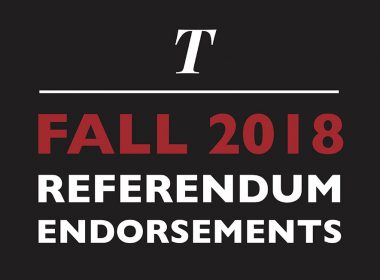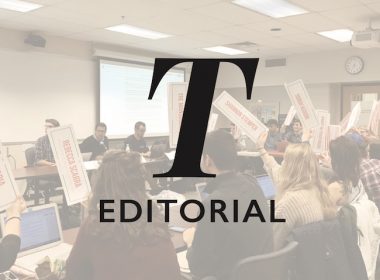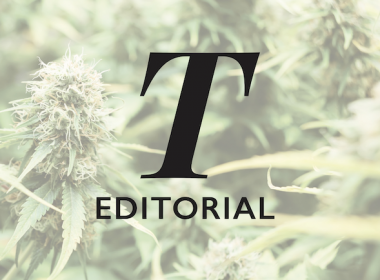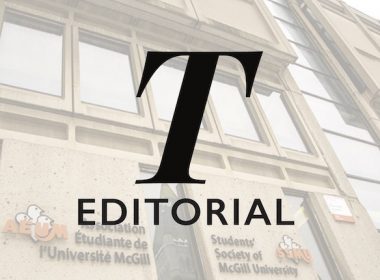Helena Zakrzewski, Secretary-General Zakrzewski ran on a platform of improving mental health services for graduate students, increasing support for international students, and re-engaging society members. Over the past semester, she has overseen and supported the initiatives of other PGSS councillors while undertaking an extensive evaluation of PGSS governance bodies. Zakrzewski[Read More…]
Editorial
Standing with Kagame against police brutality
Social work student and former president of the McGill African Students’ Society (MASS) Jean Kagame is facing charges of stunt driving after the Ontario Provincial Police (OPP) stopped him on his way to Toronto on Nov. 21. During the interaction, one of the officers repeatedly yelled and swore at the[Read More…]
The current S/U option is unsatisfactory
As the end of term nears, students start scrambling to calculate the minimum grades they need to achieve on their final exams to pass their courses. Amidst the stress, the Satisfactory/Unsatisfactory (S/U) grading option offers some respite. Vice President (VP) University Affairs (UA) Jacob Shapiro wants to incentivize students to[Read More…]
Social work students deserve compensation
Unpaid and underpaid labour is pandemic in university culture; from internships to extracurriculars, students are often encouraged to take on work that pays in ‘experience’ rather than monetary compensation. From Nov. 19 to 23, the Social Work Students’ Association (SWSA) and the Social Work Association of Graduate Students (SWAGS) are[Read More…]
The student Code requires student input
Influencing McGill administration can feel like a futile pursuit, but, this month, students have a tangible opportunity to voice their concerns. The administration is currently revising the Code of Student Conduct for the first time since 2013 and has been seeking student input. Set to be amended by the end[Read More…]
Fall 2018 referendum endorsements
Motion regarding changing the Redmen name: ‘Yes’ Since 1929, the McGill men’s varsity sports teams have been known as the ‘Redmen.’ The name represents centuries of systemic oppression of indigenous peoples, and its negative impacts on indigenous students supercede its debated intent. With repeated calls for a name change by[Read More…]
The Anti-Violence Fee Levy requires immediate support
While the Students’ Society of McGill University (SSMU) is notorious for inaction, SSMU broke ground on Oct. 11 when it became the first student union in Canada to pass a Gendered and Sexual Violence Policy (GSVP). However, the decision was contentious, and the Legislative Council saw lengthy debate about the[Read More…]
#ChangeTheName, and change the norms, too
Thousands of students, allies, and Montrealers have been calling on McGill to change the name of their varsity men’s sports teams. A petition on Change.org has garnered over 8,000 signatures as of press time, and a demonstration is taking place on Oct. 31, due in large part to the work[Read More…]
McGill should blaze a trail in campus cannabis regulation
Hundreds of Montrealers lined up at the Société québécoise du cannabis’s (SQDC) Ste. Catherine and Peel location on Oct. 17, vying to be among the first Canadians to buy legal marijuana. Only a few blocks away, a few new rules were also taking effect at McGill. In accordance with provincial[Read More…]
External affairs require internal dialogue
2018 has seen politics play out on social media, and the world of student government is no exception. On Oct. 2, the day after the Coalition Avenir Québec (CAQ) won a majority mandate in the provincial election, then vice-president (VP) External of the Student’s Society of McGill University (SSMU) Marina[Read More…]


